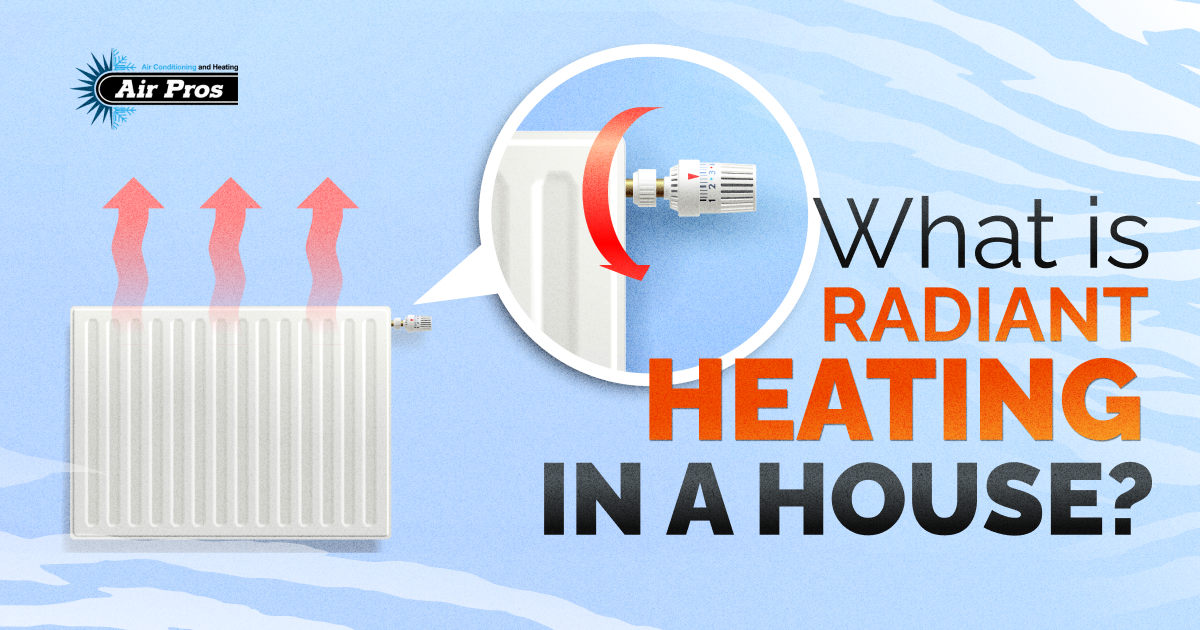Most people enjoy a cozy comfortable, inviting, warm environment, especially during the winter months. To make this goal a reality, many choose a heating system out of the many options.
One increasingly popular method that has been gaining attention is radiant heating. Let’s go through the concept of radiant heating, the different systems that it works with, its advantages, and disadvantages, and the radiant floor heating cost.
Understanding Radiant Heat
Radiant heating is a method of warming space by directly heating the services within it. Unlike traditional forced air systems that circulate warm air through the vents, radiant heat comes from surfaces, like floors, walls, or ceilings. The term radiant is used to describe the gentle and consistent warmth that envelops the room while the heating system is working.
Radiant Heating Systems
Radiant heating systems can be classified into various types, but one of the most common applications is radiant floor heating. The system involves installing heating elements beneath the floor, allowing the entire floor service to radiate heat. Radiant floor heating can be achieved through electric systems or hydronic water-based systems.
Thanks to this heating system, waking up in the morning on a cold winter day is far more pleasant because you get to put your feet on a warm floor surface. However, there are advantages and disadvantages to consider with this type of heating system.
Advantages of Radiant Heating
- Comfortable and consistent warmth that provides a more uniform temperature across a room, eliminating cold spots, commonly experienced with forced air systems.
- Radiant heating operates at higher energy efficiency because it uses lower temperatures than traditional heating systems.
- Radiant heating is also far quieter than a regular furnace or HVAC system.
- With radiant heating, homeowners have more design freedom because they do not have to work around bulky radiators or vents.
Disadvantages of Radiant Floor Heating
- While radiant heating systems are long-term energy savings, the initial installation cost can be higher compared to traditional heating systems.
- Some flooring materials work better with radiant heating than others with hardwood and tile as the preferred flooring compatibility option. Some flooring materials work better with radiant heating than others with hardwood and tile as the preferred flooring option.
- Radiant heat systems may have a slower response time compared to forced air systems, meaning they take longer to reach the desired temperature.
Radiant Floor Heating Cost
As with all heating and air conditioning systems, the installation costs of radiant heating will vary depending on certain factors. These factors include the type of systems, size of the space, and the chosen flooring material in the house. The national average for installing radiant floor heating is $3,800.
Type of System
The choice between electric radiant heat and hydronic (water-based) systems significantly impacts the overall cost. Electric systems are generally more straightforward to install and are suitable for smaller spaces, making them a potentially more budget-friendly option for certain applications.
On the other hand, hydronic systems involve more complex installation, as they require a network of pipes to circulate heated water beneath the floor. While the upfront costs for hydronic systems may be higher, many homeowners appreciate their long-term efficiency and lower operational costs.
Size of the Space
All HVAC systems have to be sized to the home they are being installed in. The bigger the heating system, the more expensive it will be in installation and operational costs. Some people opt to install radiant heating in smaller spaces like kitchens or bathrooms to make it more cost-effective.
Flooring Material if the House
The type of flooring material selected for your radiant heating system also plays a role in the overall cost. Some materials conduct and retain heat better than others. Hard surfaces like tile or stone are excellent conductors of heat and work well with radiant floor heating.
However, certain carpeting or thick flooring materials may impede the transfer of heat, potentially affecting the efficiency of the system. It’s important to choose a flooring material that complements the radiant heating system to ensure optimal performance.
Looking to Install Radiant Heating?
Are you considering radiant floor heating for your home? If so, contact Air Pros USA today for a free estimate and to understand all that will go into the installation process for your specific heating needs. With our HVAC installers, your radiant heating installation will be seamless and stress-free.











